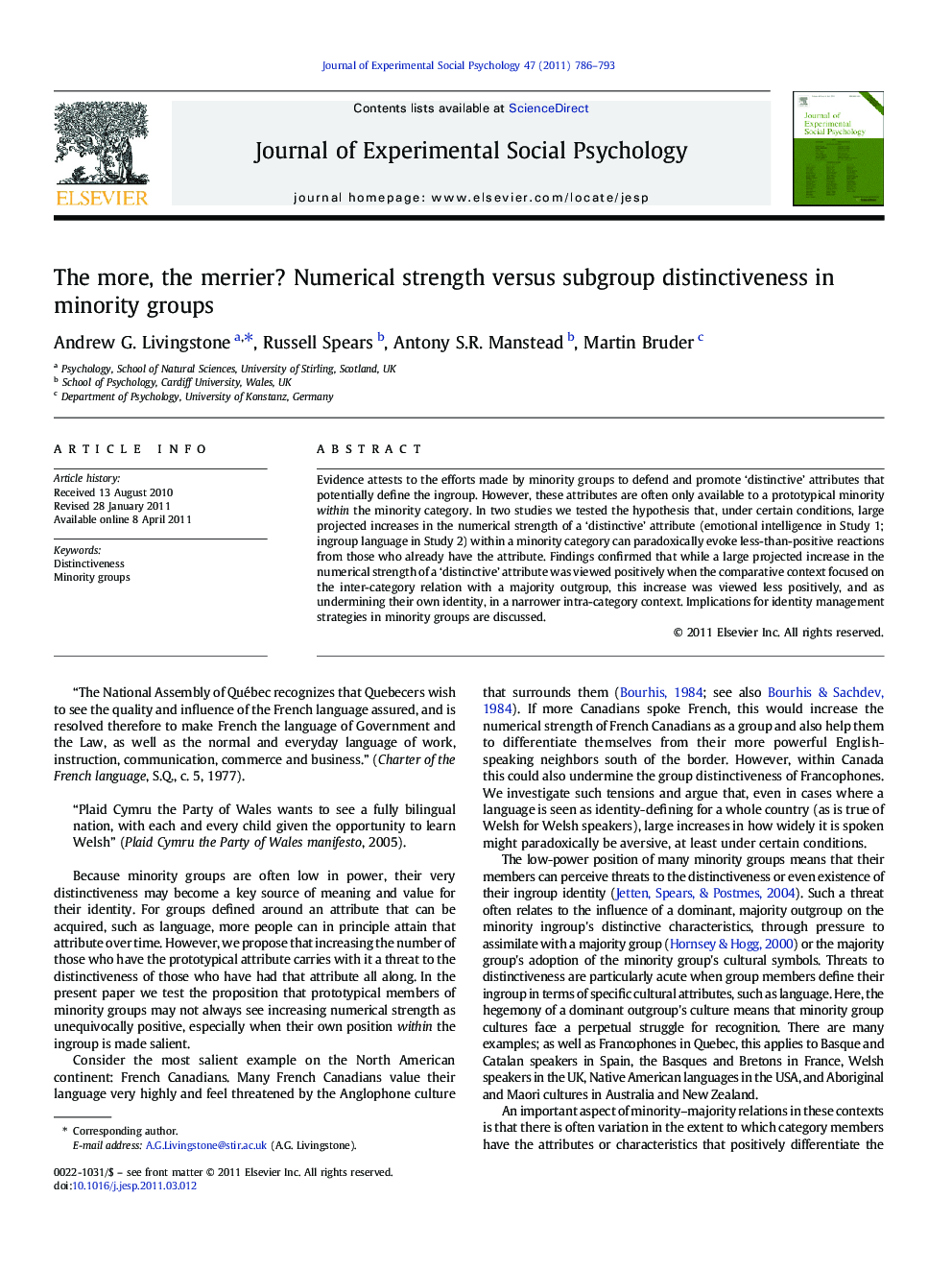| Article ID | Journal | Published Year | Pages | File Type |
|---|---|---|---|---|
| 948184 | Journal of Experimental Social Psychology | 2011 | 8 Pages |
Evidence attests to the efforts made by minority groups to defend and promote ‘distinctive’ attributes that potentially define the ingroup. However, these attributes are often only available to a prototypical minority within the minority category. In two studies we tested the hypothesis that, under certain conditions, large projected increases in the numerical strength of a ‘distinctive’ attribute (emotional intelligence in Study 1; ingroup language in Study 2) within a minority category can paradoxically evoke less-than-positive reactions from those who already have the attribute. Findings confirmed that while a large projected increase in the numerical strength of a ‘distinctive’ attribute was viewed positively when the comparative context focused on the inter-category relation with a majority outgroup, this increase was viewed less positively, and as undermining their own identity, in a narrower intra-category context. Implications for identity management strategies in minority groups are discussed.
Research Highlights► Is the spread of a group-defining attribute ‘good’ for minority group members? ► Reactions to the spread of an attribute depended on the comparative context. ► A large increase evoked positive emotions when viewed in an inter-category context. ► In an intra-category context, the same large increase evoked less positive emotions. ► The effect of context was partially explained by threat to subgroup identity.
